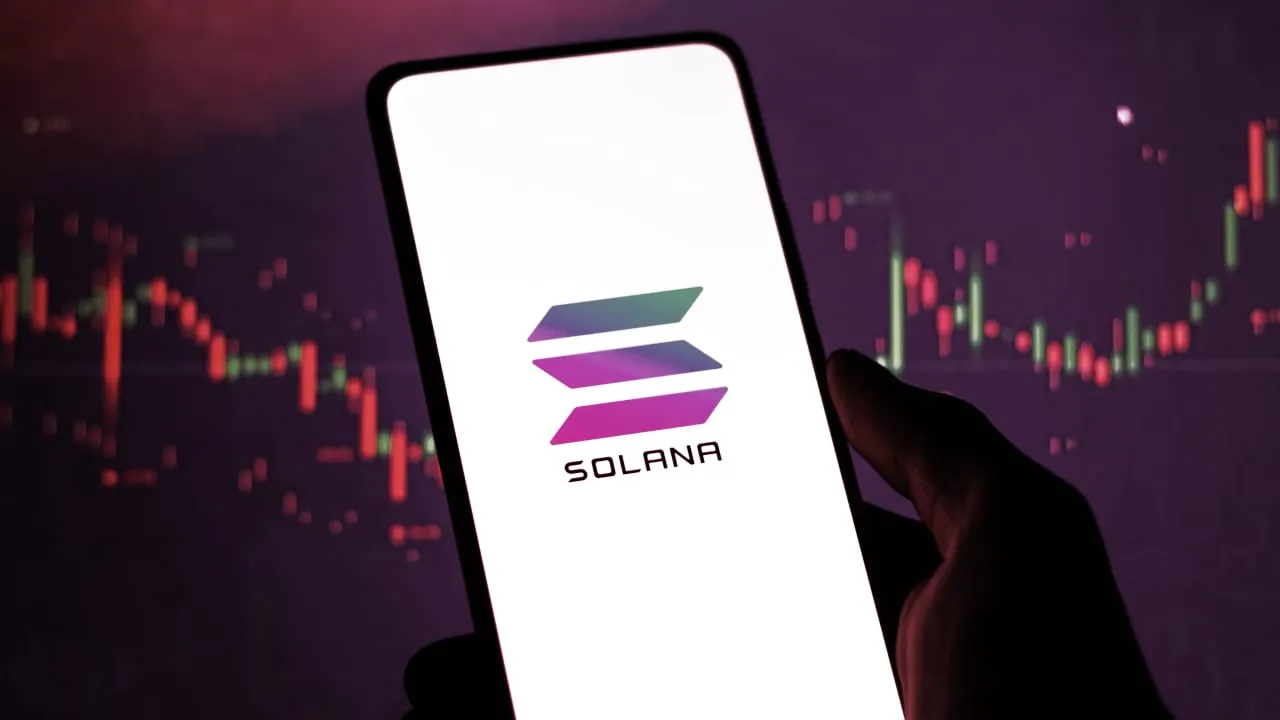Solend, a decentralized lending protocol on the Solana network, has narrowly avoided having 95% of the SOL deposits in its lending pool liquidated.
At the center of the controversy is a large account holder, known as a whale, with an outsized presence on the lending protocol and responsible for the vast majority of the SOL coins within it. The account had an outstanding loan of $108 million worth of US Dollar Coin (USDC) and Tether (USDT), collateralized in SOL, the native cryptocurrency of the Solana network. The loan risked being liquidated as the price of SOL tanked to as low as $27 on Wednesday and Saturday last week.
Had the price of SOL continued to drop, and the $21 million in SOL collateralizing the loan gone into liquidation, Solend would have been left with almost no SOL. The project's co-founder suggested that the rush to buy up that much SOL for cheap could have crashed the $2.6 billion Solana network.
Early on Tuesday, the protocol announced that the whale borrower had moved $25 million worth of USDC debt to Mango Markets, another Solana-based lending protocol, thereby alleviating Solend of some of the burden and reducing the protocol’s risk.
3oSE...uRbE has acted on our suggestion to spread their position across lending venues (decentralized and centralized) as a first step.
So far they've moved $25M USDC debt to @mangomarkets
This shows commitment to working things out and solves Solend's USDC utilization problem.
— Solend (we're hiring!) (@solendprotocol) June 21, 2022
The total value locked in the Solend protocol topped out at $1.4 billion at the start of April, was cut in half, to $725 million, during the collapse of Terra in May and has been on a rapid decline over the past week.
As of Tuesday afternoon, there was $247 million worth of assets locked in the protocol and another $171 million in outstanding loans.
That liquidation would have been disastrous for Solend because, with prices lagging, the market would have struggled to absorb the $21 million worth of SOL (or 20% of the collateral) that would have been automatically liquidated. The lending protocol would have been at risk of losing almost its entire SOL lending pool at seriously low rates.
And the scramble by liquidators to buy up the $21 million worth of SOL for fire sale prices would have put the Solana network through its paces, wrote Solend’s pseudonymous co-founder Rooter.
“This could cause chaos, putting strain on the Solana network,” they wrote in the blog post. “Liquidators would be especially active and spamming the liquidate function, which has been known to be a factor causing Solana to go down in the past.”
Having convinced the borrower to move some of their debt to another protocol, Solend managed to reduce some of its exposure, but didn’t remove it entirely. The borrower still owes $84 million to the protocol.
The community has taken action to mitigate that risk, or at least prevent it from happening again.
Earlier today, the Solend community voted to overwhelmingly approve a proposal that would impose a $50 million borrowing limit per account and adjust the smart contract (the computer code that governs the lending protocol) so that it will temporarily liquidate 1%, not 20%, of deposits on undercollateralized loans.
The DeFi lending protocol, its name a portmanteau of the words “Solana” and “lend,” started trying to contact the borrower last week when it looked like the 5.7 million SOL deposit collateralizing a $108 million stablecoin loan (US Dollar Coin and Tether), could be liquidated if the price of SOL dropped to $22.30.
Rooter, the co-founder, even introduced a proposal, labeled “SLND1,” to take control of the account so that the collateral could be liquidated in an organized manner that wouldn’t clog (and potentially crash) the Solana network. But after voting in support of that plan, the community overturned it.
“We've been listening to your criticisms about SLND1 and the way in which it was conducted,” the Solend team wrote on the proposal to invalidate the vote after receiving feedback that 24 hours had not been enough time for members to cast their votes.
At the time, markets were reeling from news that crypto lender Celsius had frozen withdrawals to prevent a bank run and $3 billion hedge fund Three Arrows Capital was negotiating with creditors to keep itself solvent.
Solend works the same as many other lenders in DeFi, which is a term used for non-custodial apps that enable users to trade, borrow and loan crypto assets without any third-party intermediaries, such as banks. On Solend, users deposit collateral—currently 47 different coins and tokens across 18 liquidity pools—and borrow crypto assets worth up to 75% of their collateral.
Using crypto to secure loans on any blockchain has been especially risky in the turbulent market. In May, Lido took to Twitter to warn borrowers that the Ethereum they had deposited to borrow Lido Staked Ethereum (stETH) might be liquidated.
A similar problem reared its head last week when a large borrower, at the time believed to be Three Arrows Capital, tried to stave off liquidation of $300 million worth of loans from DeFi lenders Aave and Compound.

